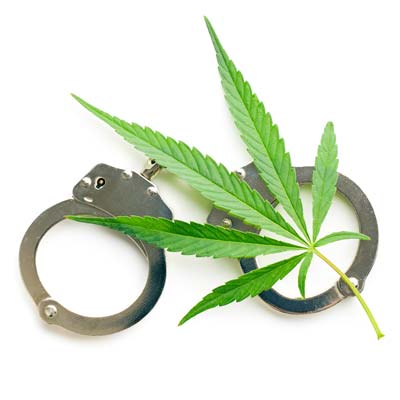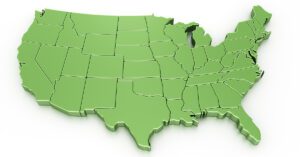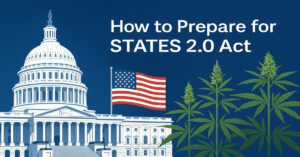Landlords may personally be subject to criminal and civil penalties for allowing illegal cannabis activity to occur on their property. Read this article to learn more about recent happenings that may affect landlords of cannabis business operations both legally and illegally.
The penalties are steep and the Bureau is quick to act, so ensure you have a cannabis compliance team available for immediate questions to quickly mitigate any negatives for your property, finances, and tenants. Ask us your questions at the end of the article.
BCC Warning Letter to Landlords
In its continuing effort to combat the state’s illegal cannabis market, the Bureau of Cannabis Control (Bureau) recently sent hundreds of letters notifying landlords that the Bureau has information their property is being used for illegal cannabis activity. These letters warn landlords that they may personally be subject to criminal and civil penalties for allowing illegal cannabis activity to occur on their property.
Lori Ajax, Bureau Chief said – “This action is an important step in the state’s effort to combat the illegal cannabis market. It is our hope that by detailing the penalties faced by landlords who rent their space to illegal operators, landlords will better understand the severe consequences that could come with knowingly facilitating illegal commercial cannabis activity and those currently breaking the law will have fewer options where they can conduct their businesses.”

Examples Penalty Types Found in the Letter
The letter included California Health and Safety Code section 11366.5, subdivision (a), which makes it a criminal offense to allow property to be used for any illegal cannabis activity punishable up to one year in county jail.
Additionally, illegal operators are subject to potential forfeiture and other criminal penalties. A person who aids and abets in the commission of a crime, including unlicensed cannabis activity, may be held liable for the crime as if the person directly committed the offense.
What are the Fines and Civil Liability to Landlords of Illegal Cannabis Businesses?
In addition to criminal liability, landlords may be subject to fines and civil liability. Business and Professions Code section 26031.5 allows for the imposition of fines up to $30,000 per day for illegal cannabis activity.
All commercial cannabis activity in California must be conducted on a premises with a valid state license. Manufacturing, distributing or selling cannabis goods without a state license or at a location that is not licensed is a violation of state law.
What should landlords, business owners, and consumers do next?
Getting this letter does not mean all is lost, there may be an administrative error or a required permit that can be acquired to become compliant with Bureau regulations. Here are our tips for what each type of person in the cannabis industry should do to stay safe with compliant operations.
What should cannabis consumers do? – The best way to find out if a business is licensed is to go to a state’s website like www.CApotcheck.com and enter the name of the business or the physical address. Choose licensed businesses to stay safe, ensure proper testing, and support the businesses doing it the compliant / legal way!
What should businesses receiving the letter do? – Recipients of these notices should take them seriously and should immediately attempt to clarify and rectify the situation with the Bureau and the local licensing authority to mitigate liability exposure for the tenant in possession illegal and incurable breach of their leasehold agreement.
What should cannabis business landlords do? – Landlord’s should consult with an attorney experienced with both landlord-tenant law and Bureau regulations.
Commonly, the prescribed course of action is to serve the tenant in possession with a Three-Day Notice to Quit the Premises pursuant to Cal. Code of Civil Procedure Section 1131(4), and then, if necessary, proceed with an unlawful detainer action to have the court formally evict the tenant in possession. To avoid this headache, commercial cannabis landlords should thoroughly and continuously conduct due diligence on their cannabis tenants to ensure all local and State permits and licenses required for the business are in good standing.
Commercial Cannabis Landlord Questions?
Ask Our Compliance Team!
Related Reading





